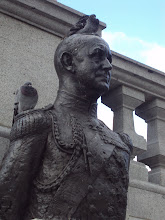Read it here.
Jesus’ death brings life. Because of His death, which gives us second birth, there are communities, friendships, and relationships started that never would’ve existed otherwise.
What is described in this little paragraph of scripture are the fruits of the gospel: fear, awe, prayer, equality, sharing, charity, thankfulness, love, praise, and even favor with non-believers. The new Christians are delighting in their new life, they have been born again as Jesus promised (John 3:3) and non-believers notice. They don’t see people acting very pious and religious, they see people burning with love and compassion, sharing all that they own, going to the Temple to worship joyfully, not out of tradition, duty, or cultural obligation. Who wouldn’t want to worship the God these people worship? Who wouldn’t want a taste of their joy? If this God they worship is anything like them, He must be good.
This text doesn’t describe everyone going home to pick fights or picket or complain or tell people they’re wrong. The opposite happens, because these people have been changed at the center of their being to see their sin, in all its dirtiness, and Jesus, in all His worthiness. Their changed lives speak and profess the gospel in a way that matches whatever spoken words they could offer to non-believers.
In a country and time when Christians are on every street corner telling everyone they’re going to hell, we should take note of this text. We need to be loving, giving, and radiant with joy. If people hate us, they should hate us because of Jesus, not because of ourselves. In other words, they should hate us for loving them and forgiving them (because of Christ) not because we are shoving tracts down their throat.
This text is also a message about the importance of community. I'm in college right now, and I have several Christian friends who don't want to get involved in a church because they have one back home. I can't see how this is a benefit to anyone - they are missing out on the richness of a church community and the church community is missing out on the richness of knowing them.
God made us to live together (Genesis 2:18) and share life together. We're not supposed to be "Lone Ranger" Christians, we're supposed to be Christians together. I know because I've had to learn this for myself. My greatest times of growth and joy are when I'm spending time with other Christians, and I know it will be so my whole life.
If you look at Paul, who seems like the most independent guy in the New Testament - traveling from place to place, leaving behind his home - you find he wasn't alone! He was always with people and talking about people, his ministry was a community effort. Imagine if he hadn't seen the need for community, for spiritual support - how far would he have been able to carry the gospel before collapsing in exhaustion? Would we know the gospel today?
God has richly blessed us with community, and friendships, and other people.
"Two are better than one, because they have a good reward for their toil. For if they fall, one will lift up his fellow. But woe to him who is alone when he falls and has not another to lift him up!" (Ecclesiastes 4:9-10)
